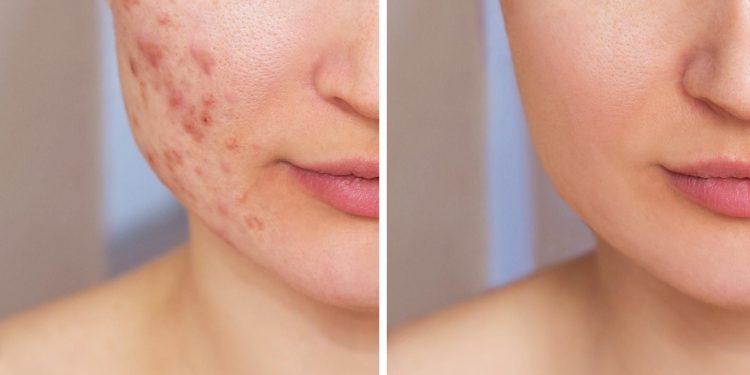In recent years, the relationship between diet and skin health has become a focal point of research and discussion within the medical community. It has prompted many to revisit the old adage, “You are what you eat,” probing deeper into the impact of our dietary choices on our skin’s appearance and health. As a skin doctor, I can affirm that while topical treatments and skincare regimes are important, what we consume can also have a profound impact on our skin.
Introduction
Most individuals visit a skin doctor or dermatologist to address specific issues like acne, rosacea, or premature ageing. Often, the discussion veers toward prescription medications, over-the-counter creams, or even invasive procedures. However, few realise that your dinner plate might be as influential as your medicine cabinet in affecting your skin’s health. This comprehensive article aims to shed light on the scientific evidence that explains how different foods and dietary patterns can influence your skin’s health.
The Role of Nutrition in Skin Health
Before diving into the specifics, it’s essential to understand how nutrition interacts with the skin at a cellular level. The skin, being the largest organ of the body, requires a constant supply of nutrients to maintain its functions, including protection against environmental toxins, UV radiation, and physical injuries. Vitamins, minerals, and even fats play a role in maintaining skin integrity, reducing inflammation, and combating oxidative stress.
Macronutrients and the Skin
- Proteins: Essential for skin repair and regeneration. Collagen, a primary protein in the skin, gives the skin its strength and elasticity.
- Carbohydrates: Simple sugars can lead to inflammation and may exacerbate skin conditions like acne. Complex carbohydrates like whole grains are better alternatives.
- Fats: Omega-3 fatty acids found in fish have anti-inflammatory properties that can help with conditions like psoriasis and eczema.
Micronutrients and the Skin
- Vitamins A, C, E: These are antioxidants that fight against skin ageing by neutralising free radicals.
- Zinc: Plays a role in skin repair and also has anti-inflammatory properties.
The Relationship between Diet and Common Skin Conditions
Acne
For years, chocolate and greasy foods were unfairly blamed for acne outbreaks. Contemporary studies suggest that high glycaemic index foods like processed sweets and white bread can cause fluctuations in blood sugar levels, leading to inflammation and acne.
Ageing
The antioxidants found in fruits and vegetables combat oxidative stress, which contributes to the ageing process. Foods rich in Vitamin C, such as citrus fruits, can aid in collagen synthesis, giving your skin a more youthful appearance.
Rosacea and Inflammation
Spicy foods and alcohol are common triggers for rosacea, a condition causing redness and visible blood vessels in your face. Foods rich in anti-inflammatory compounds like green tea and fatty fish can help manage these symptoms.
Eczema
A balanced diet rich in Omega-3 fatty acids can go a long way in managing the symptoms of eczema. Omega-3s help in reducing inflammation, which can alleviate some of the itching and redness associated with this condition.
Case Studies and Research
Several research studies corroborate the influence of diet on skin health. One study indicated that individuals who consumed more fruits and vegetables showed a more healthful and attractive skin tone, attributed to carotenoid deposition in the skin. Another study linked dairy consumption to acne, suggesting that hormones present in milk might exacerbate the condition.
Practical Tips from a Skin Doctor
- Stay Hydrated: While not a “food,” water is crucial for skin health, keeping it hydrated and aiding in detoxification.
- Opt for Colour: The more colourful your plate, the more likely it’s filled with antioxidants, beneficial for your skin.
- Limit Processed Foods: High in sugars and fats, processed foods are often the culprit behind skin problems.
- Incorporate Healthy Fats: Foods like avocados, nuts, and olive oil are not only good for your heart but also beneficial for your skin.
Conclusion
While visiting a skin doctor for specific skin issues is important, understanding the role of diet in skin health can empower you to make informed choices that benefit not just your skin, but your overall well-being. By balancing your diet, you can potentially alleviate or even prevent certain skin conditions, reducing your reliance on medications and creams. Remember, your skin often reflects your internal health, so make mindful dietary choices to display your best self to the world.
As with any medical advice, it’s always best to consult a skin doctor or healthcare provider for personalised recommendations. And while diet plays a significant role in skin health, it’s crucial to remember that it is just one piece of a larger puzzle, which includes other factors like genetics, lifestyle, and environmental exposures.
By incorporating evidence-based dietary practices, you can pave the way for healthier, more radiant skin. So the next time you find yourself pondering over skincare, perhaps it’s time to reevaluate not just what you apply on your skin, but also what you consume.











